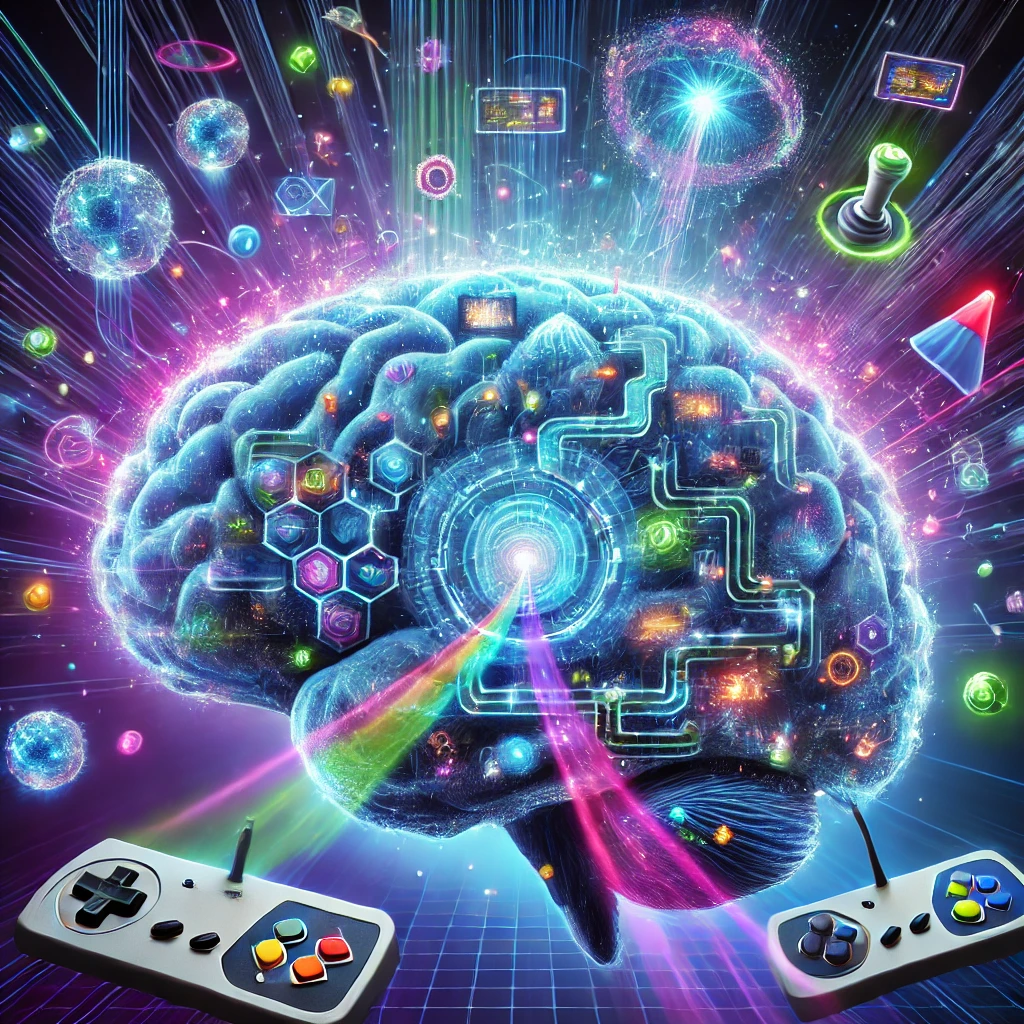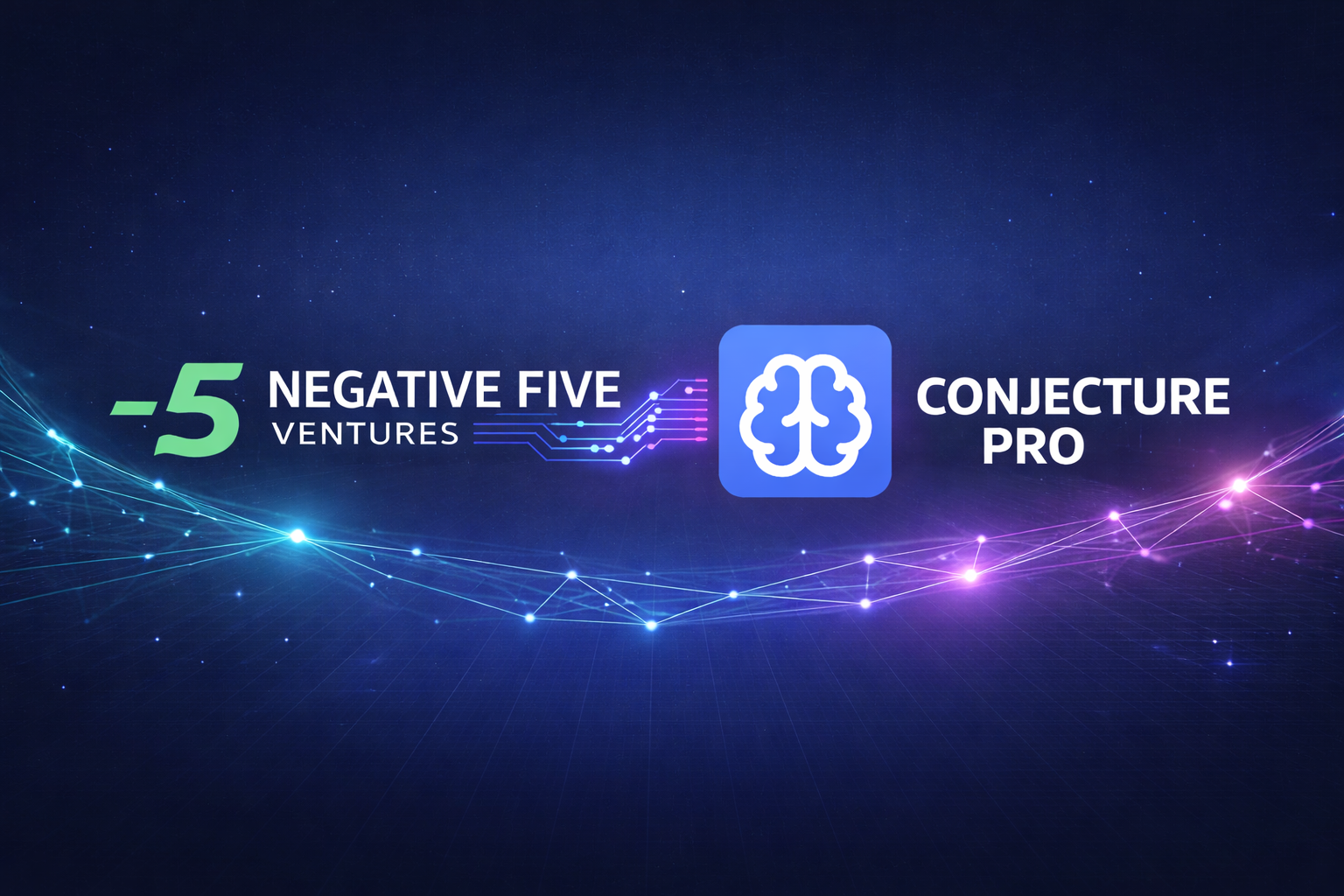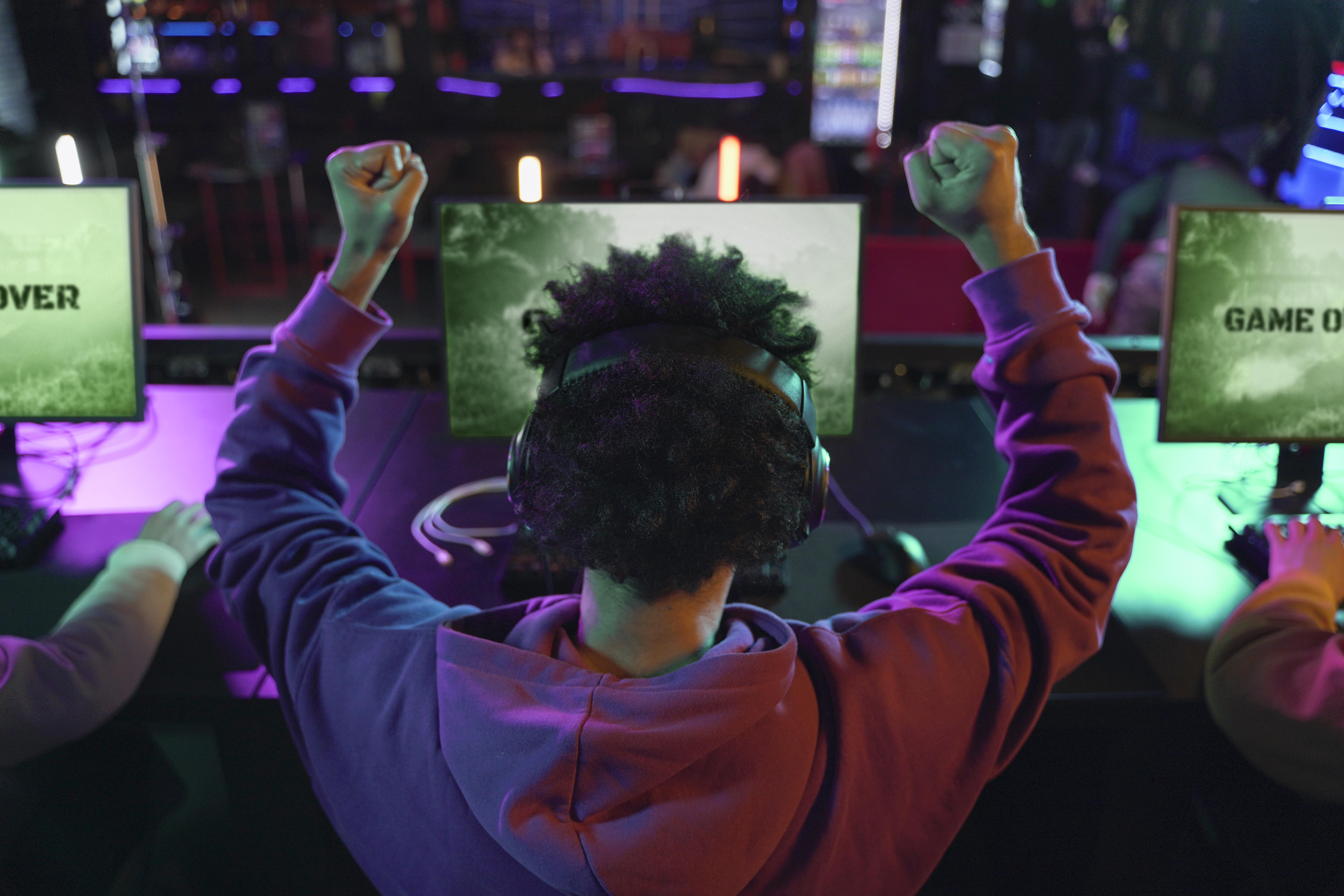Video games are becoming more and more popular everyday, leading many people wondering how they can affect our brains and behavior. Like many groundbreaking innovations throughout history, gaming brings both positive and negative effects, shaping our brains, behaviors, and experiences in complex ways. On the bright side, games can improve thinking skills and help people relax. They can also strengthen our memory and help our brains work more efficiently. However, there are also concerns about people becoming addicted to playing games or developing unwanted behavior changes. This article looks into what scientists have found about how video games affect us.
Introduction
Video games have become one of the most popular ways people are having fun today, with over 3 billion people playing them all around the world. As gaming has grown more popular, experts have been trying to understand how it affects our brains and behavior. While people used to think and still do think that video games are just bad for us, new research shows they can have both good and bad effects if played in reasonable amounts. This article explores recent studies to better understand how playing video games changes our brains.
Cognitive Effects of Video Games
Several studies have focused on the cognitive impacts of video games, particularly on improving specific brain functions like memory, attention, and problem-solving skills.
Memory and Attention
Video games, especially action and strategy ones, can help improve memory and focus both. A study called “Effects of memory and attention on the association between video game experience and cognitive abilities in adolescents” found that people who play games often, show more activity in parts of their brains that are responsible for attention. This better focus can help them switch between tasks more easily and therefore do multiple things at one time. Also, games that need quick decisions to be made, like first-person shooter games, help the brain process what we see and hear better. This makes the connections in the brain associated with attention and understanding stronger.
Problem-Solving Skills and Executive Function
Strategy games, such as puzzles or role-playing games (RPGs), help improve skills like problem-solving, planning, and reasoning, as well. Players learn to think more carefully and adapt to changing situations by creating strategies and solving challenges in the game. Studies, like “The relationships between video game experience and cognitive abilities in adolescents,” show that gaming can help develop problem-solving and decision-making skills. However, it’s important to remember that too much gaming can sometimes make it hard to use these skills in real life because players may rely too much on virtual situations.

Neurological Effects of Video Games
Researchers have looked closely at how video games affect brain activities using tools like EEG and fMRI. These studies help us understand how playing video games change or activate brain functions.
Brain Activation and Stress Responses
The article “EEG-based stress analysis using rhythm-specific spectral features for video gameplay” looks at how video games affect stress by studying brain waves. The researchers found big changes in brain activities during gameplay, especially in the alpha and beta waves. Fast games often trigger the brain’s stress responses, making players more alert and excited. On the other hand, easy and relaxing games can help reduce stress. For instance, playing puzzles or simulation games was shown to lower cortisol levels, which means they can calm the brain down. Whether video games cause stress or help relieve it depends on the type of game and how long you play.
Neural Plasticity and Brain Structure
Studies show that playing video games can help the brain change and adapt. Playing games often can stimulate the hippocampus, an area important for memory and navigation. Action games, especially, are connected to increased brain matter in areas that help with movement and visual skills.
On the other hand, playing games too much can lead to less brain matter in the prefrontal cortex, which helps with self-control and decision-making. This suggests that it’s important to play games in moderation to prevent their negative effects on the brain.
Behavioral Effects of Video Games
Researchers have focused on how video games affect behavior, especially social skills and mental health.
Gaming and Behavioral Changes
The study “Comparison of Behavioral Changes and Brain Activity between Adolescents with Internet Gaming Disorder and Student Pro-Gamers” highlights the important differences between professional gamers and those with Internet Gaming Disorder (IGD). Professional gamers showed better thinking and movement skills, while people with IGD had problems with social behavior, were more impulsive, and showed more aggression.
Changes in behavior can depend on the type of games played. For example, games that require teamwork can encourage helpful behavior such as cooperation, while violent games may lead to aggressive behavior in some people. However, researchers point out that the link between violent games and aggression is more complicated and affected by other factors like the person’s character and their surroundings. (nature and nurture)
Video Games as Therapeutic Tools
Video games can help reduce pain, anxiety, and stress. The article “Examining the Effects of Casual Video Gameplay as an Analgesic Distraction” found that playing casual games can distract people from pain and make them feel better mentally.
This is important for hospitals, where video games can work alongside regular treatments to help patients feel better. Games made for brain recovery have also been helpful in improving movement in people recovering from strokes or brain injuries.
Risks and Concerns of Excessive Gaming
Even though gaming has many benefits, playing too much is a serious problem. The World Health Organization has recognized Internet Gaming Disorder (IGD), showing some gamers can become addicted as a result of excessive playing. Signs of this disorder include losing control over gaming, feeling bad when not playing, and having trouble with everyday life.
Spending too much time on screens can also cause health issues, like trouble sleeping, weight gain, and feelings of sadness. Studies found that people with IGD may have changes in their brains, like less gray matter in an area that helps with self-control and feeling management.
Conclusion
Video games can affect the brain in different ways, both good and bad. They can improve skills like attention, memory, and problem-solving and help reduce stress, as well. On the bad side, playing too much can lead to addiction, changes in behavior, and problems with the mind and body.
Future studies should look for the right amount of gaming that gives the most benefits while reducing the risks. Teachers, parents, and leaders need to work together to encourage healthy gaming habits that support learning and behavior. If you seek more information on this subject, feel free to read our other article: “Leveraging AI and Gaming to Advance Mental Health Support“.
Q&A Section
1. Can video games improve cognitive skills?
Yes. As studies show, playing video games, especially action and strategy ones, can improve skills like memory, attention, and problem-solving. These games help parts of the brain dealing with focus, making choices, and handling multiple tasks at once.
2. How do video games affect stress levels?
Video games can be stressful or relaxing, depending on the type of game. Fast games can increase stress, while chill ones can help reduce it.
3. Are there any neurological risks associated with excessive gaming?
Too much gaming can shrink parts of the brain that help you control impulses and make decisions. This raises the chances of getting addicted and having trouble managing your emotions.
4. Can video games help in therapeutic treatments?
Yes, They now help treat pain, anxiety, and stress. They also help people recover from brain injuries.
5. What is Internet Gaming Disorder (IGD)?
Internet Gaming Disorder (IGD) is a condition recognized by the World Health Organization, characterized by symptoms such as impaired control over gaming, withdrawal effects, and disruptions in personal, social, or professional life.
References
National Library of Medicine, International Journal of Environmental Research and Public Health (IJERPH), Istanbul University, Khulna University of Engineering & Technology, California State University




